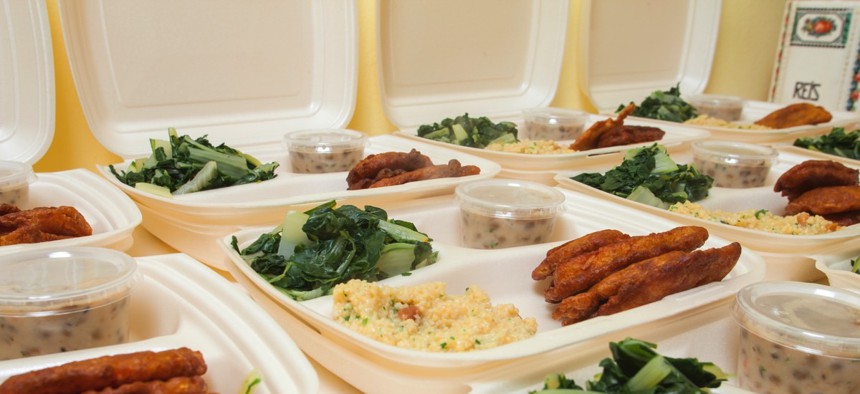Why New York Still Wants to Ban Styrofoam

Paul Prescott / Shutterstock.com

Connecting state and local government leaders
A state Supreme court justice thwarted the Big Apple’s first attempt, but City Hall is determined.
A state Supreme Court justice stopped New York City’s mayor-backed ban on Styrofoam in its tracks Tuesday.
Mayor Bill de Blasio’s first major environmental initiative in office was having the city’s Department of Sanitation prohibit restaurants, stores and manufacturers from distributing expanded polystyrene (EPS), or “soft foam.”
City officials argued soft foam can’t be recycled, but Manhattan Justice Margaret Chan called Sanitation Commissioner Kathryn Garcia’s determination “arbitrary and capricious,” in a 14-page decision, citing contrary evidence:
In sum, the Commissioner's recommendation against designating single-serve EPS as recyclable is based on her concern that there is not a viable and sustainable market for post-consumer recycled EPS and that the Dart/PRI proposal would peter out after five years. Absent a market, the Commissioner found, recycling post-consumer EPS would not be environmentally efficient and economically feasible. The Commissioner's concern is not justified given the abundant evidence showing a viable and growing market for not just clean EPS but post-consumer EPS material; that EPS recycling and the post-consumer EPS market is beyond the pilot program stages or still paddling in untested waters; and that Dart's financial investment of $23M dollars to DSNY benefits the City of New York, even if it is a bigger benefit to Dart's self-interest. While "subsidized collection of [EPS] is not recycling" as argued by Cas Halloway, Deputy Mayor for Operations, before the City Council, it does speak to the economic feasibility prong that the Commissioner was charged to review.
New York was the largest city banning Styrofoam, which forms everything from packing peanuts to take-out boxes to coffee cups, along with—to various degrees—municipalities like San Luis Obispo, California; Portland, Maine and Washington, D.C.
The ban went into effect July 1 and applied to all soft foam except that used in prepackaging food prior to receipt by establishments or in storing raw meat sold by butchers. Nonprofits and small businesses making less than $500,000 annually could apply for hardship exemptions, but fines greater than those for marijuana offenses were to be issued starting in January 2016.
In April, a business coalition, including foam vessel manufacturer Dart Container Corporation and the Restaurant Action Alliance, sued over the ban.
Garcia said the city could save around $400,000 a year if 40 percent less EPS went into New York’s landfills, but Chan held the city would save even more money if it went along with a Dart proposal on the table to supply Sims Municipal Recycling with an optical sorting machine for foam, training in its use and four more employees. Plastics Recycling Inc. offered to buy the foam from Sims at $160 a bale.
Chan annulled the ban and remanded the matter to Garcia for reconsideration, but City Hall is looking to challenge the decision.
“We disagree with the ruling,” spokeswoman Ishanee Parikh told NY1. “These products cause real environmental harm, and we need to be able to prevent nearly 30,000 tons of expanded polystyrene waste from entering our landfills, streets and waterways.”
Dave Nyczepir is News Editor for Government Executive’s Route Fifty.
NEXT STORY: Oakland Sues Wells Fargo, Alleging Predatory Mortgage Lending to Minorities





